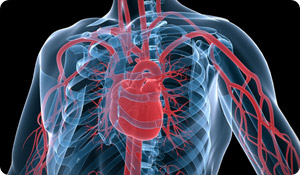
Anemia occurs when your blood has a lower than normal level of hemoglobin, the protein found in red blood cells. Red blood cells carry oxygen and remove carbon dioxide from the body. When you have low levels of hemoglobin, the lack of oxygen to the heart means the heart has to work harder, potentially putting you at greater risk for heart disease or making existing heart disease worse.
Studies are finding that patients suffering from heart disease and either already have or develop anemia, are more likely to experience more severe heart problems, spend more time in the hospital, and have higher mortality rates than patients without anemia. According to the National Anemia Action Council, many large studies have shown that anemia is common in 17 percent to 48 percent of people with heart failure.
A recent statistical analysis conducted by researchers at the Charles Sturt University in Wagga Wagga, Australia, of results from 21 observational clinical studies of 97,699 patients with congestive heart failure, found that patients with anemia had a 66 percent higher mortality risk than those patients without anemia.
Anemia was also associated with a 35 percent higher risk of developing greater heart failure severity. However, it wasn't clear from the analysis whether having anemia caused heart failure progression or whether treatment of the anemia would reverse the problem.
Symptoms of Anemia
If you have mild anemia, you may not experience any signs of the problem at all. However, as the anemia worsens you may develop:
- Fatigue
- Pale skin
- A fast or irregular heartbeat
- Shortness of breath
- Chest pain
- Dizziness
- Cognitive problems
- Cold hands and feet
- Headache
Be sure to see your doctor if you suddenly feel tired for no apparent reason or experience any of the other above symptoms.
Causes of Anemia
Common types of anemia include:
- Iron deficiency anemia in which the body doesn't produce enough iron. Without an adequate supply of iron, the body can't make enough hemoglobin for red blood cells.
- Anemia caused by chronic disease. Some chronic diseases, such as cancer, HIV/AIDS, rheumatoid arthritis, and Crohn's disease, interfere with the production of red blood cells, resulting in chronic anemia.
- Sickle cell anemia. This inherited anemia commonly affects African-Americans and people of Arabic and Mediterranean descent.
Although many types of anemia can't be prevented, eating a healthy diet that includes iron-rich foods like
- beef,
- dark green leafy vegetables,
- beans,
- peanut butter,
- and nuts can help you avoid iron and vitamin deficiency anemias.
Sources:
Yi-Da Tang, MD, PhD; Stuart D. Katz, MD. Contemporary Reviews in Cardiovascular Medicine. "Anemia in Chronic Heart Failure."
http://circ.ahajournals.org/cgi/content/full/113/20/2454
MedscapeCME. "The Cardio-Renal Anemia Syndrome: Links Between Anemia and Heart Failure."
http://cme.medscape.com/viewarticle/496851_3
MedPage Today. "Anemia in Heart Failure May Spell Mortality Risk."
http://www.medpagetoday.com/tbprint.cfm?tbid=14466
National Anemia Action Council. "Handouts: Anemia & Heart Disease."
http://www.anemia.org/patients/information-handouts/heart-disease/





